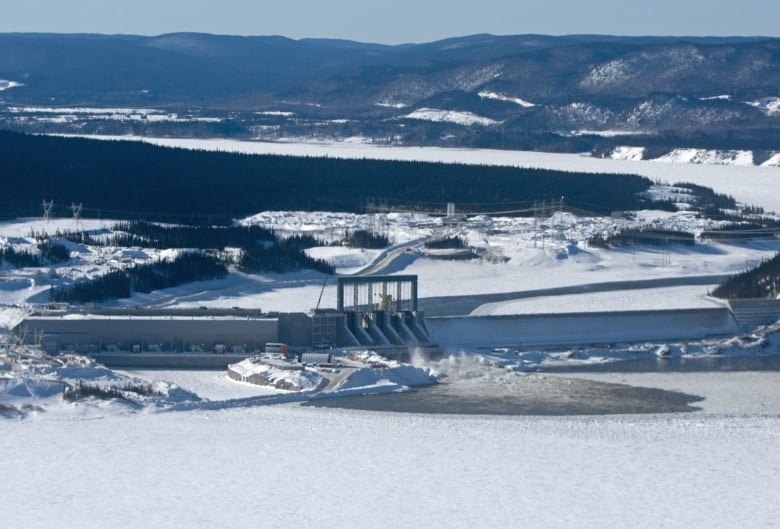Inquiry reveals questionable Muskrat planning, cost confusion
Public hearings at the inquiry in recess until May 2
Public hearings at the Muskrat Falls inquiry have shut down for about a month, with plenty of alarming revelations to digest as the investigation enters the home stretch:
- Political confusion over the cost of a multibillion-dollar project.
- Contractors continually clashing with Nalcor.
- A lack of planning driving up the price tag on a publicly funded project.
These were just some of the recent revelations as testimony from a parade of witnesses — from politicians and contractors to Nalcor officials and construction workers — helped paint a picture of a hydroelectric project in chaos from the very beginning.
The inquiry learned about confusion at the very top levels of government about the projected cost for the project. Former premier Kathy Dunderdale testified she "must have known" the cost had escalated by $300 million to more than $6.5 billion at the time the federal loan guarantee was formalized in late 2013.
"I believe, truly believe, that I knew it was $6.5 [billion]," she told the inquiry.
Her finance minister at the time, however, Tom Marshall, believed it was still $6.2 billion, which was the figure used to sanction the project in late 2012.
"I don't remember getting that information," Marshall said of the higher number.
Other politicians have also testified that the first they'd heard of the $6.5-billion figure was during the inquiry itself.
'Treated like slaves'
More light was also shed on the toxic relationship between Nalcor and the company it hired to manage the project, SNC-Lavalin, with Nalcor eventually taking over from SNC and establishing joint-management teams.
A witness for SNC-Lavalin, Normand Bechard, testified Nalcor treated him and his team "like slaves."
Bechard also had harsh criticism for Nalcor's handling of the project, including the decision to award a $1-billion contract to Astaldi for construction of the power house at Muskrat Falls.
Bechard said a company like Hydro-Québec would never award such a large contract because it would put the contractor in a position of power. Based on his experience, he said, Hydro-Québec would have broken the work into several contracts so if there was a problem with one of the companies, it would simply negotiate with the others to complete that work.
Bechard's comment was an obvious dig at the disastrous Astaldi contract, which saw Nalcor paying the Italian company hundreds of millions in additional payments and eventually evicting Astaldi from the project in late 2018.
A dome disaster
The inquiry also heard new details about an attempt, which failed miserably, by Astaldi to build a massive temporary dome over the Muskrat site, adding perhaps $1 billion to the price tag and setting the project back by a full year.
A construction worker involved with the project testified the dome was "not doable to begin with."
- Toilet brushes and windshield scrapers: Workers give blistering critique of Muskrat planning
- Foundation miscalculation: Why the Muskrat transmission line went so far over budget
And the consequences of Nalcor's decision to award a huge contract for the construction of the 1,100-kilometre transmission line from central Labrador to Newfoundland's Avalon Peninsula without conducting a detailed geotechnical review of the route were also exposed.
That contract soared by roughly $650 million, largely because it was necessary to install much more sophisticated foundations at the base of many of the steel towers.
"Have you ever seen a project of this size done with limited geotechnical work?" an inquiry lawyer asked a witness who managed the transmission line project.
"I have not personally, no," he replied.
A pattern of disturbing information
It's the latest in a pattern of disturbing information to be drawn out by the inquiry, which is investigating why the all-in cost for the project has grown by more than $5 billion since it was sanctioned in late 2012.
And the man whose job it is to protect the interests of electricity ratepayers in the province, consumer advocate Dennis Browne, has been watching it all, with his longstanding opposition to the project growing by the day.
On Friday, after the final witness until May 2 left the witness stand, Browne's criticism of political leaders from the early Muskrat era was once again blistering.
The government are the financial trustees for the people of the province. They failed miserably in that aspect. A complete dereliction of duty.- Dennis Browne
"The government are the financial trustees for the people of the province. They failed miserably in that aspect. A complete dereliction of duty," he said.
One of the issues that keeps coming up is that the provincial government committed to fund any cost overruns on the project as part of the terms of the federal loan guarantee.
Browne said this amounted to a blank cheque for Nalcor, with the province providing what one lawyer described as "weak, feeble and limited" oversight of the Crown corporation.
Browne said it's the equivalent of asking someone to build you a house, and then telling them to send a bill when it's done.
"Who would build a house without asking the contractor, 'What are the upper limits of the cost of this?'" said Browne. "No one out there who is reasonable would conduct themselves in such a fashion. But our government did."

Critics say it's clear the provincial government and Nalcor barreled forward on the project without any real independent and wide-ranging oversight, with contingency budgets well below industry standards, and schedule forecasts that were practically impossible.
Browne said the level of planning was disturbingly low, yet Nalcor's extreme micromanagement of its contractors was "spooky."
"There was a rush to sanction. A rush to financial close. There was a rush to get to Muskrat Falls," Browne said.

